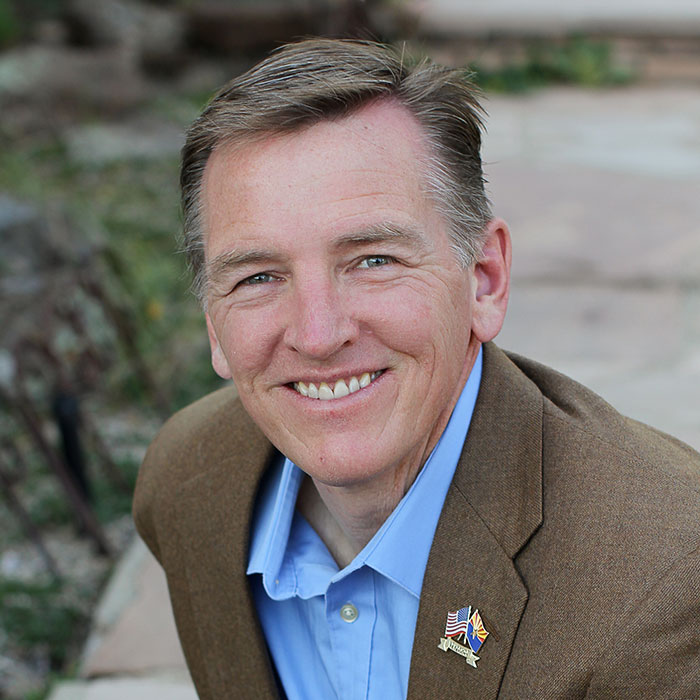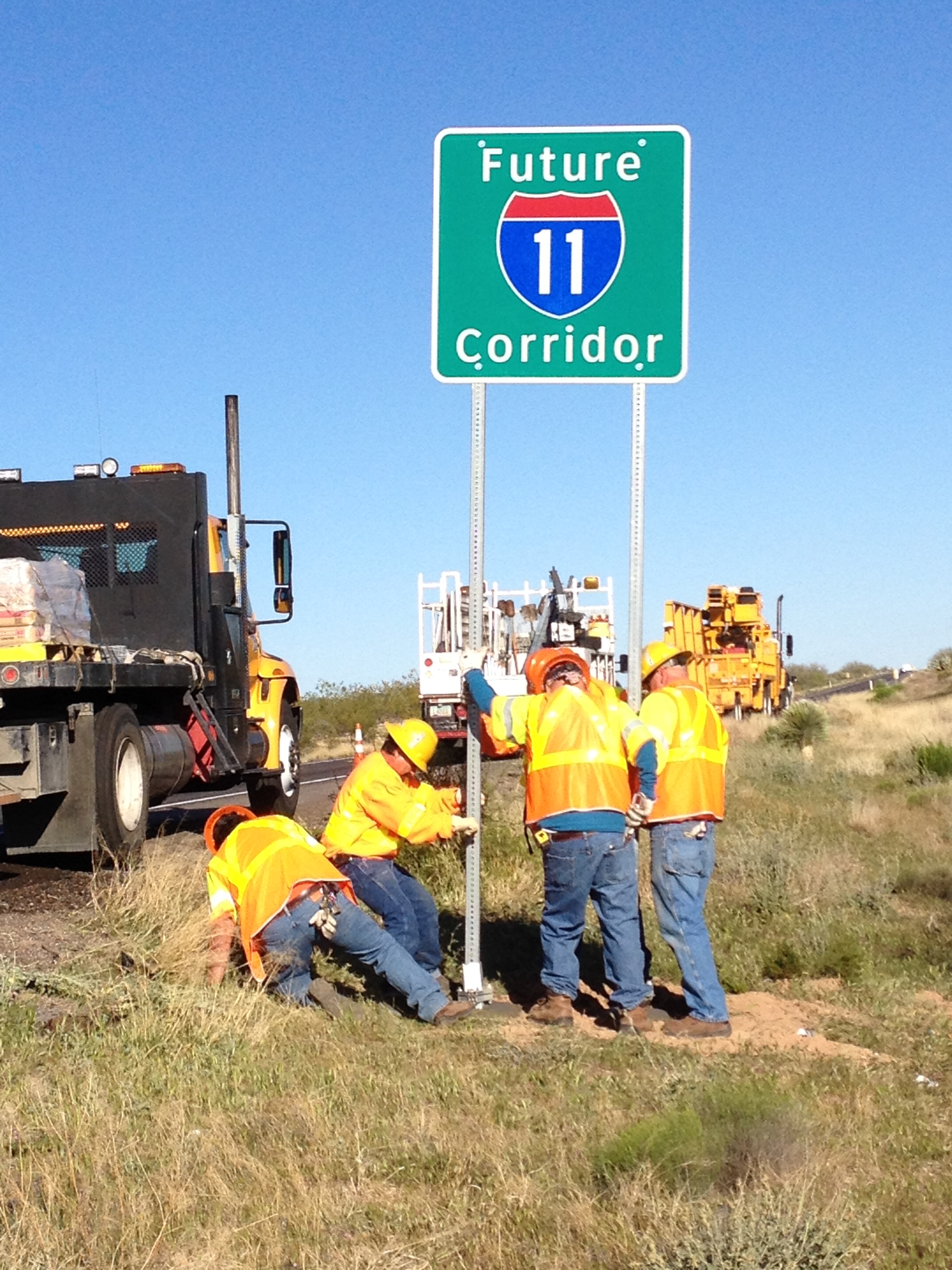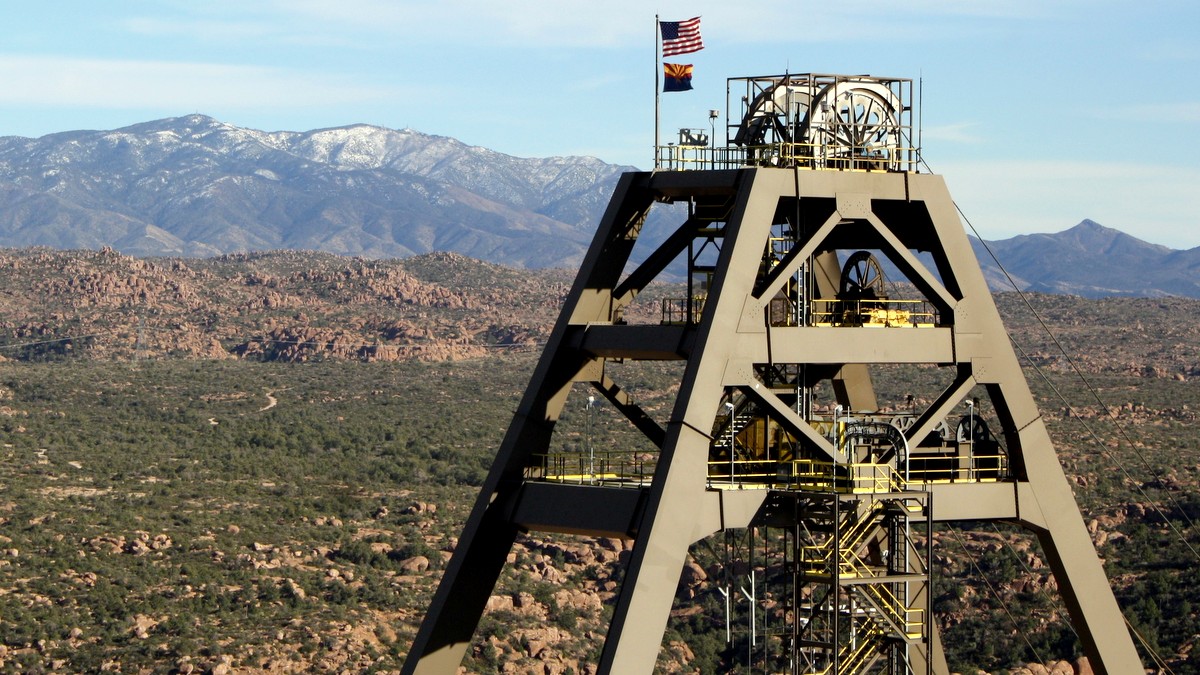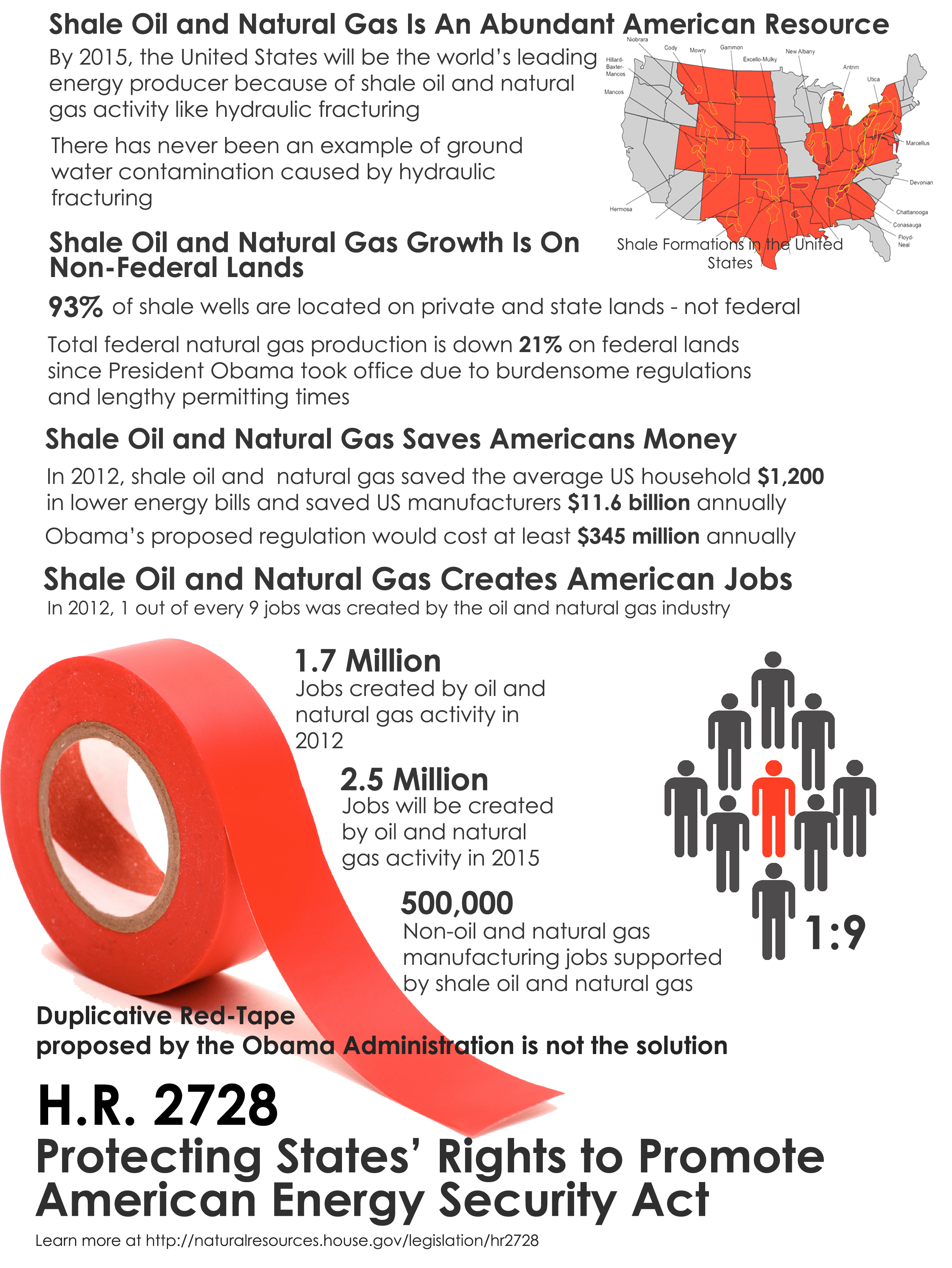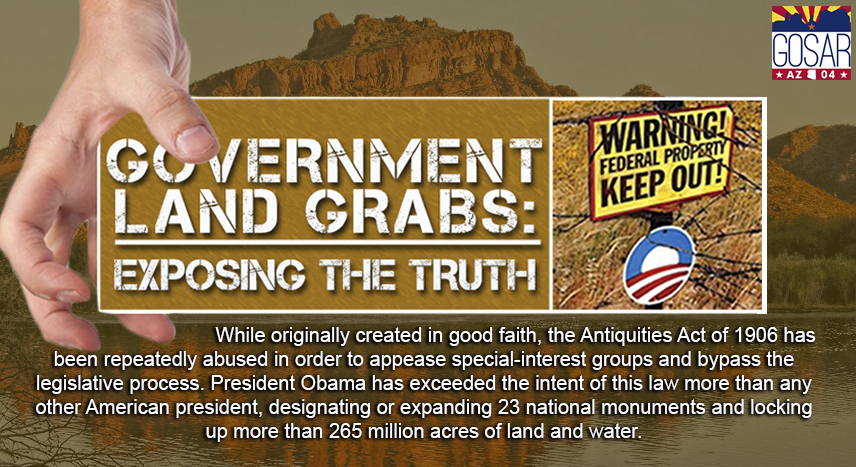Economy and Jobs
|
I believe in free market economics. The federal government is not the reason the United States is the world’s largest economic power. Rather, the government is merely the beneficiary of our free market system. As a job creator in the healthcare industry for 25 years, I came to Washington to remind others that the more involved the government becomes in industry, the more difficult it is for industry to thrive and prosper. I have made it my priority to get the federal government out of the way and to repeal nonsensical regulations which inhibit job growth. To be clear, there is room for state and federal regulation to prevent monopolies, excessive pollution, and malevolent manipulation of the stock market; but all regulations must be smart, clear, and minimal, and must be crafted carefully in conjunction with industry and citizen stakeholders. Regulations must not stifle innovation or economic progress. Arizona is home to what we call “The Five Cs” which are Cattle, Cotton, Citrus, Climate, and, of course, Copper. I will continue to advocate for commonsense policies that reduce burdensome regulations and foster economic growth. Interstate 11 and the Intermountain West Corridor Development Act As the co-chair of the House I-11 Caucus, I continue to push this Arizona priority forward and to expand the coalition of stakeholders and advocates. I was instrumental in the initial authorization of the future I-11 corridor project by championing authorizing language included in MAP-21, the major transportation and infrastructure bill passed by Congress in 2012. This was the critical first step of the major economic development project that will connect Phoenix and Las Vegas, the two largest cities in the nation not linked by an interstate highway. CLICK HERE to read more about this successful effort. In March 2015, I introduced H.R. 1612, the Intermountain West Corridor Development Act of 2015. This legislation extends the future I-11 beyond the Phoenix – Las Vegas region to connect shipping ports in Southern Arizona through Northern Nevada to existing major interstate networks in the Northwest. Extending I-11 and allowing it to become the main transportation corridor in the West will be an economic boon for our communities, creating jobs, allowing for an easier flow of goods and services and authorizing the construction of much needed infrastructure. A 2014 economic analysis found that I-11 and the Intermountain West Corridor will create at least 240,000 permanent jobs and generate $22 billion for our economy. The Intermountain West Corridor Development Act was signed into law in December 2015 after being included in H.R. 22. CLICK HERE to read more to read more about this successful effort.
Keeping Lake Havasu Open for All Users The Fish and Wildlife Service (Service) has been arbitrarily seeking to enact new boating restrictions on Lake Havasu and close areas to tubing, wake-boarding and water skiing activities. Prohibiting tubing, waterskiing and wake boarding in an area utilized by recreational enthusiasts for decades, two days before Memorial Day Weekend, without public comment and without merit is appalling. Pursuing massive new unwarranted boating restrictions not based on science less than a year later is shameful. I have been fighting these unnecessary restrictions since I first learned about them and have been leading the charge to keep Lake Havasu open for all users. I spearheaded the effort to defeat the April 2016 proposed restrictions. I passed an amendment through the House instructing the Service to reopen the area the agency shutdown in May 2015. Boaters visiting Lake Havasu support more than 2,000 jobs, generate more than $63 million for the city's economy and spend more than $150 million annually. CLICK HERE to read more The Grand Canyon Tourism Jobs Protection Act In the 112th Congress, I introduced bipartisan standalone legislation, the Grand Canyon Tourism Jobs Protection Act of 2012 (H.R.4198), to protect tourism jobs and preserve natural quiet at the Grand Canyon National Park. The provisions of H.R.4198 were ultimately codified into public law through H.R.4348, also known as MAP-21. The air tour and tourism industries at the Grand Canyon are critical to Arizona’s economy. In 2011, tourism at the Grand Canyon helped sustain more than 300,000 jobs. The air tour industry around this historic landmark supported 1,250 good-paying jobs in Arizona and Nevada during that same timeframe. This commonsense legislation has created good-paying jobs and boosted economic activity in an extremely rural area. In February 2014, the FAA announced 1,721 additional Grand Canyon flights per year utilizing quiet technology as a result of my commonsense legislation. CLICK HERE to read more. The Catastrophic Wildfire Prevention Act In February 2014, my Catastrophic Wildfire Prevention Act, H.R. 1345 was signed into law as part of the Federal Agriculture Reform and Risk Management Act (H.R. 2642). My bill authorized important stewardship contracting, good neighbor authority as well as important insect and disease infestation designations. This commonsense legislaiton will reduce government bureaucracy so that wildfire prevention projects can move forward quickly when the public is at risk. CLICK HERE to read more. The Southeast Arizona Land Exchange and Conservation Act There are very few types of laws Congress can pass that facilitate the creation of wealth and energy security. I have championed one such initiative: the Southeast Arizona Land Exchange and Conservation Act. After years of legislative hearings and executive branch hurdles, Senator McCain and I were finally able to get this bill over the finish line and signed into law in December of 2014. This bipartisan legislation facilitates a land exchange between the federal government and private industry so that it may mine copper, one of Arizona’s most valuable and abundant resources. Even modest economic estimates project that the land exchange facilitated by this act will lead to 3,700 jobs and will have a total economic impact to the State of Arizona to the tune of $61.4 billion over the life of the mine. Once the operation is running, the mine will provide 25% of the United States’ copper supply and will be the largest copper mine in North America. CLICK HERE to read more about the Southeast Arizona Land Exchange and Conservation Act.
Preserving the Rainbow Trout Stocking Program at the Willow Beach Fish Hatchery In November 2013, the Fish and Wildlife Service (USFWS) arbitrarily changed the priorities for the five different propagation program categories and announced their intent to close propagation programs and possibly hatcheries throughout the nation in fiscal year 2015. The USFWS also terminated the rainbow trout stocking program at the Willow Beach National Fish Hatchery in Arizona threatening 1,700 jobs and $75 million in associated economic output. Rather than producing trout that help drive Arizona’s economy, the Fish and Wildlife Service wanted to focus on producing humpback chubs and razorback suckers. I had to hammer a few bureaucrats, pass a bill through Committee and have several Arizona witnesses testify at a hearing in order to resume this important program. CLICK HERE to read more. Keystone XL The House has voted 11 different times since I’ve been in Congress to approve the Keystone Pipeline. The State Department found back in January of 2014 for the second time that the pipeline would have NO significant impact on climate change. Conservative estimates from the State Department at that time also projected that the Keystone XL Pipeline would support more than 42,000 jobs. Moreover, it has bipartisan support - even labor unions support it. The ONLY thing holding this up is politics. Unfortunately, President Obama, for no good reason, vetoed this legislation. CLICK HERE to read more. National Strategic and Critical Minerals Production Act I am an original cosponsor of the National Strategic and Critical Minerals Production Act. This commonsense legislation will create hundreds of thousands of jobs by reducing U.S. dependence on foreign minerals from countries like China. The bill streamlines the regulatory review process and eliminates unnecessary red tape that is blocking job creation. CLICK HERE to read more. Lowering Gasoline Prices to Fuel an America That Works Act In the 113th Congress, I voted for and the House passed H.R. 4899. The bipartisan Lowering Gasoline Prices to Fuel an America That Works Act would create an estimated 1.2 million jobs, lower gas prices for hard-working American families and generate more than a billion for our economy. Travel and Resource Access Including Local Stakeholders (TRAILS) Act In the 113th Congress, I introduced the Travel and Resource Access Including Local Stakeholders (TRAILS) Act to protect approximately 40,000 jobs and $4 billion for Arizona’s economy that is associated with off highway vehicle (OHV) recreation. The BLM in Arizona has been in the process of developing a Travel management Plan for parts of Southwestern Arizona, named the La Posa Travel Management Plan. Previous media reports indicated the BLM was looking at closing as many as 51 percent of all trails with this management plan. My legislation requires the agency to work with local communities to ensure this important industry is protected and these jobs are preserved. CLICK HERE to read more. Navajo Generating Station In Arizona, the EPA’s “War on Coal” could force the Navajo Generating Station (NGS) to close its doors, which will mean the permanent loss of nearly a 1,000 good-paying jobs. The Navajo Generating Station provides an affordable, reliable, and sustainable energy source to power critical water supplies to cities, industries, farms, and tribal communities encompassing nearly 80% of Arizona's population. As a result, closure of the plant will also cause water prices to spike significantly. CLICK HERE to read more about my efforts to protect NGS. Increasing Liquefied Natural Gas (LNG) Exports In the 113th Congress, I cosponsored and voted for Domestic Prosperity and Global Freedom Act. This commonsense legislation which passed the House streamlines the permitting process and would allow our country to export more liquefied natural gas. The American Petroleum Institute estimates that by 2035 “LNG exports could contribute as much as $10 to $31 billion per state to the economies of natural gas-producing states…Natural gas-producing states could see employment gains as high as 60,000 to 155,000 jobs…Non-natural-gas-producing states will also benefit…[and] see economic gains as high as $2.6 to $5.0 billion per state. CLICK HERE to read more. Protecting States’ Rights to Promote American Energy Security Act In the 113th Congress, I voted for and the House passed H.R. 2728, the Protecting States’ Rights to Promote American Energy Security Act. This legislation would protect American jobs and energy production by preventing the Obama Administration’s ability to impose duplicative federal regulations for hydraulic fracturing. An economic analysis found that these overreaching new federal regulations will cost our economy approximately $350 million annually and would jeopardize nearly 1.7 million American jobs. CLICK HERE to read more.
Improving Coal Combustion Residuals Regulation I am a cosponsor and voted for passage of the Improving Coal Combustion Residuals Regulation Act. This commonsense legislation prevents duplicative regulations and allows states that have traditionally managed coal ash programs to continue to create and manage these operations. Allowing states to continue to manage coal combustion residuals programs will assist with sustaining an estimated 316,000 jobs. Lifting the Oil Export Ban I was a cosponsor of three pieces of legislation that seek to repeal the antiquated oil export ban. This outdated policy was enacted in the 1970s when oil scarcity was an issue. Repealing the oil export ban will lower gas prices and foster significant economic growth for our economy. The Energy Equipment and Infrastructure Alliance estimates that lifting the crude oil export ban will create nearly 8,500 new jobs in Arizona by 2018. A study by IHS energy found that "lifting the ban would create an estimated 1 million American jobs in nearly all 50 states within a matter of years, and it would add $170 billion annually to our GDP." The House passed H.R. 702 with my support in October 2015 and also passed an amendment with my support in December 2015 to life the crude oil export ban. Legislation lifting the ban was finally signed into law at the end of 2015. The Restoring Healthy Forests for Healthy Communities Act In the 113th Congress, the House passed H.R. 1526, the Restoring Healthy Forests for Healthy Communities Act. Conservative estimates indicated that this legislation would create more than 68,000 direct jobs & nearly 140,000 indirect jobs. I authored title II of this legislation. This important bill also sought to adopt a forward-thinking, active management strategy that combats dangerous wildfires before they get started. CLICK HERE to read more. Increasing Certainty for American Businesses In the 113th Congress, I voted for and the House passed H.R. 4718. This bipartisan legislation was estimated to create 212,000 jobs. The bill would increase certainty for employers by increasing access to capital and allowing for the immediate 50% deduction of the costs associated with new equipment purchases and certain property improvements. This legislation would create jobs, increase wages and foster economic growth. Federal Lands Jobs and Energy Security Act In the 113th Congress, I voted in favor of the Federal Lands Jobs and Energy Security Act. This legislation would expand onshore American energy production on federal lands and create tens of thousands of new American jobs by streamlining government red-tape and regulations. The House of Representatives passed this bill with a bipartisan vote of 228-192. CLICK HERE to read more. Jobs for America Act In the 113th Congress, I voted for and the House passed H.R. 4, the Jobs for America Act. This bipartisan legislation would have created hundreds of thousands of jobs. This bill also contained commonsense policies that would improve forest health, allow for the hiring of more veterans, repeal burdensome policies associated with Obamacare, allow for increased development of our natural resources and provide tax relief to American families as well as small businesses.
Protecting Americans from Tax Hikes (PATH) Act In December 2015, I voted for the bipartisan PATH Act. This legislation prevented tax increases for millions of businesses and hard-working American families. The Path Act made permanent several important tax provisions including: the R&D tax credit, section 179 small business expensing, the state and local sales deduction and 15-year recovery for restaurant and leasehold improvements. A study by the National Federation of Independent Business (NFIB) Research Foundation found that permanent Section 179 small business expensing will "increase economic output by almost $19 billion and create nearly 200,000 jobs over the next 10 years." The Responsibility in Federal Contracting Act In January 2015, I introduced H.R. 924, the Responsibility in Federal Contracting Act, legislation which requires the calculation of wages for public works projects to be based on actual statistics calculated by the Bureau of Labor Statistics (BLS). For far too long, wages for public works projects have been determined by an outdated and flawed formula that sacrifices accuracy, jobs and billions of federal tax dollars. The current calculation dates back to the 1931 Davis-Bacon Act and is riddled with fraud and abuse as evidenced by multiple Inspector General (IG) and Government Accountability Office (GAO) reports. A 2008 Department of Labor Inspector General (IG) report found that “one or more errors existed in 100 percent of the wage reports.” Research conducted by the non-partisan Congressional Budget Office estimates that upwards of $13 billion could be wasted over 10 years if Davis-Bacon is left unreformed. Another reputable economic analysis projected that reforming the current method would have saved the federal government nearly $11 billion in 2011 alone. My commonsense legislation will cut waste, create jobs and save billions. CLICK HERE to read more. Federal Regulations: Increased Scrutiny and Efforts to Repeal Federal regulations affect almost everything we do. Some regulations are necessary - they protect consumers, public health, the environment, and many other things. But many regulations constitute an array of unnecessary, burdensome, expensive, and sometimes even counterproductive regulations. Federal bureaucrats are running wild—developing far more regulations than necessary, often “solutions in search of a problem”—and it has cost our country dearly. Our Founding Fathers intended for the federal government to be a small part of our everyday lives. The sooner we restore our independent spirit and encourage individual initiative, the sooner our economy will grow. To get there, Congress needs to reassert itself, override job-killing bureaucrats, and implement a whole-scale repeal of unnecessary and wasteful regulations. Prohibiting Executive Overreach and National Monument Designations Special interest groups have been pushing for the President Obama to circumvent Congress and make a massive 1.7 million acre designation using the Antiquities Act for the Grand Canyon Watershed. The intentions of these self-interest groups are clear: they want this designation to prevent energy development, timber harvesting, grazing, mining and different types of recreation on this massive swath of land. A designation of this size would cause significant harm to our economy and kill thousands of local jobs. In November of 2015, I introduced H.R. 3946, the Protecting Local Communities from Executive Overreach Act, legislation which updates the 1906 Antiquities Act in order to protect property rights, water rights and jobs from presidential abuse of the Antiquities Act. H.R. 3946 is supported by all five Arizona House Republicans and blocks two misguided monument efforts in the Grand Canyon Watershed and the Sedona Verde Valley, both of which have significant local opposition. I have also passed two appropriations amendments through the House to block these unilateral land grabs. CLICK HERE to read more.
Blocking the EPA's Harmful WOTUS Regulation The EPA’s new Waters of the U.S. regulation (WOTUS) was slated to go into effect August 28th. Fortunately, the Sixth Circuit has issued a nationwide stay and temporarily blocked implementation of this new rule. This job-killing, overreaching water grab being imposed by Washington bureaucrats is a dream killer for future generations that will result in significant job losses and in considerable harm to our economy. WOTUS contradicts prior Supreme Court decisions by expanding agency control over 60% of our country’s streams and millions of acres of wetlands that were previously non-jurisdictional. I have been fighting this overreach since the beginning. In May 2014, I sent a letter calling for WOTUS to be withdrawn. I held a hearing in Phoenix in June 2014 where we heard testimony from 9 Arizona witnesses. I have introduced legislation, inserted funding riders into appropriations bills, blocked a democrat amendment that tried to strip one of my WOTUS riders and voted at least five different times for legislation that has passed the House to block WOTUS. In July 2015, I berated EPA Administrator Gina McCarthy and submitted revelatory evidence into the Congressional Record from senior Army Corps of Engineer employees which expressed serious legal and scientific deficiencies with the final draft of the WOTUS rule. In January 2016, the House and Senate passed legislation blocking WOTUS utilizing the Congressional Review Act and put a bill on President Obama's desk. CLICK HERE to read more. Fighting back against Obama's War on Coal The EPA's “Clean Power Plan” rule seeks to dramatically reduce carbon emissions from power plants. American families are projected to lose almost $600 billion in disposable income as a result of EPA’s new proposed regulation. An economic analysis also found that this overreaching Washington mandate will kill 226,000 jobs annually and cost our economy $50 billion each year. All of this economic harm and destruction for our economies will only result in a 1.8% reduction of global carbon-dioxide emissions by the year 2030. I have cosponsored legislation and twice voted for bills that passed the House to block this overreach. I also requested a funding rider that was inserted into a House appropriations bill and offered an amendment to formally withdraw this new mandate. In December, the House successfully passed S.J.Res.23 and S.J.Res.24 with my support and triggered the Congressional Review Act to effectively block the Environmental Protection Agency’s (EPA) arbitrary regulations for new and existing power plants. Unfortunately, President Obama used a pocket veto days before Christmas in order to veto these critical pieces of legislation. CLICK HERE to read more. Blocking the EPA's Unrealistic New Ozone Standards I recently introduced legislation that will block the EPA’s new ozone regulation published in the Federal Register October 26, 2015. H.J.Res.74 utilizes the Congressional Review Act (CRA) to reject this overreach has 82 cosponsors. Most states are just beginning to adopt the 2008 ozone standards as the EPA didn’t announce implementation guidance and a final rule until March 6, 2015. Rather than allowing time for those standards to be implemented, the EPA moved the goal posts and is unilaterally seeking to dramatically lower the ozone standard to 70 parts per billion. The EPA has reported that 358 counties throughout the country will be immediately noncompliant, and Senator Inhofe has reported that an additional 1,500 counties likely will not meet this new mandate. Nearly 700 stakeholders throughout the country have called on Congress to stop the overreaching new ozone rule that many believe is “the most expensive regulation in history.” On June 12, a witness from the EPA contradicted the need for this new mandate when she testified June 12 before the House Committee on Energy and Commerce and stated, “Nationally, since 1980, average ozone levels have fallen by a third.” |
